Photographs: Sivaram V/Reuters Indrani Roy in Kolkata
To Asim Dasgupta (below, left), former minister for finance and excise in Bengal’s erstwhile Left Front government, the fundamental reason for India’s poor economic health is its indifference towards agriculture. He believes that a balanced approach towards exports and globalisation and a strict handling of corruption will lift the country out of despair.
In an interview to rediff.com’s Indrani Roy, Dasgupta dished out many valuable tips for the new government.
Continuing our series on the state of the Indian economy ahead of the general elections.
Part I: From boom to doom: An uphill task to revive the economy
Part II: It will take three years for economic growth to pick up
Part III: 'US economy needs to improve for India to turn around'
Part IV: Reviving the economy: What the next government should do
Part V: 'Policy paralysis in India will continue'
Part VI: 4 ways the new PM can revive the economy
After achieving above eight per cent growth, India’s GDP slumped to a disappointing 4.7% in Q3 of this fiscal. What, according to you, ails the Indian economy?
Major problems afflicting the national economy at the moment are unemployment, inflation and corruption.
India has witnessed sluggish growth, particularly in manufacturing and in agriculture.
Growth in the industrial sector in the current fiscal is estimated at 0.7 per cent whereas in the manufacturing sector, the growth has been negative.
This is a matter of grave concern.
. . .
'There has been an unfortunate fall in per capita availability of cereals'
Image: Asim Dasgupta.Photographs: Noor Islam
What immediate economic steps should the new government take to lift the country out of despair?
We need to thoroughly revamp our agricultural sector.
India has seen a great oscillation in agricultural growth path, which resulted in an unfortunate fall in per capita availability of cereals.
According to Economic Survey statistics, in 1991, per capita daily availability of cereals was 501 gram per person per day but in 2011, it fell to 462 gram.
Compared to these figures, growth in India’s population has been much higher.
This sluggishness led to inadequate growth in employment.
. . .
'Employment grew less than one per cent in three years'
Image: India has been witnessing a poor growth in employment for several years.Photographs: Mike Segar/Reuters
What steps should the new government take for creating jobs?
India has been witnessing a poor growth in employment for several years.
According to Economic Survey statistics, between 2011 and 2012 and 2012 and 2013, India's total employment grew from 2.87 crore (28.7 million) to 2.89 crore (28.9 million) which is less than one per cent.
To generate employment, India has to focus on agriculture first.
If the agriculture sector looks up, its benefits will spill over into other sectors soon and that, in turn, will generate employment.
If the BJP comes to power, who, according to you, would be the ideal FM?
I am no astrologer and, therefore, not good at making predictions.
. . .
'It's wrong to link agricultural growth with monsoon'
Image: Agriculture should be stressed at all levels consistently to stabilise the GDP, says Asim Dasgupta.Photographs: Ajay Verma/Reuters
Neelkanth Mishra, an analyst at Credit Suisse, reckons that, if activity in informal industries and rural areas were properly measured, India’s GDP would look bigger and more stable. Do you agree?
I do believe that a thorough accounting of the contribution of unorganised sectors in both rural and urban sectors will improve the gross domestic product figures of India to some extent.
Moreover, agriculture should be stressed at all levels consistently to stabilise the GDP.
What would be your tips to the new government to curb inflation?
The main solution lies in rejuvenating the country’s industrial growth.
Moreover, we must restrain ourselves from becoming too dependent on exports.
We have seen how the sub-prime crisis in USA and the slowdown in Europe had affected industrial growth.
Instead, we must concentrate on developing the domestic market.
If efforts are made to improve the purchasing power of India’s 120-crore (1.2-billion) population, there will be an enormous growth and a steady decline in inflation.
Moreover, policymakers in India often take a regressive stance and relate agricultural production with ‘good’ or ‘bad’ monsoon.
This is a faulty approach.
Sincere efforts are needed to strengthen the agricultural sector in such a way that it can counter the vagaries of nature and can maintain a healthy growth throughout the year.
. . .
'Track VAT details to catch tax evaders'
Image: Black money is accrued either through tax evasion or through hawala transactions.Photographs: Vivek Prakash/Reuters
How swiftly can India bring its black economy into the daylight? What steps should the new government take?
Two factors that help the black economy survive are: an inadequate audit and absence of political will.
Black money is accrued either through tax evasion or through hawala transactions.
The government should try and bring back money hidden in the Swiss banks.
It must also take advantage of the value added tax module introduced sometime back for effective computation of commercial tax.
VAT is like a sales tax but it differs from the sales tax in that, with the latter, the tax is collected and remitted to the government only once, at the point of purchase by the end consumer.
Therefore, if one calculates the VAT properly, one can prevent tax evasion at all levels.
Moreover, the government has to stop wrong tendering and has to bring in an open tender system.
When I was the finance minister of Bengal, I had initiated an internal audit of all government departments.
Officials of Comptroller and Auditor General of India had done the audits on deputation.
Such steps too can bring black economy into the daylight.
. . .
'Hoarders artificially jack up prices of many food items'
Image: In recent times, prices of many food items have more than doubled. A fruit vendor speaks on his phone.Photographs: Vivek Prakash/Reuters
Ask any lay person what ails Indian economy, pat comes the reply -- price rise and corruption. What steps should be taken to address both the issues?
Generally government statistics are presented in terms of Wholesale Price Index which does not reflect the ground reality at the retail level as faced by the consumers.
In recent times, prices of many food items have more than doubled.
It should be mentioned here that the Essential Commodities Act, 1955, which was brought into force to control the production, supply and distribution of certain essential commodities, became rather slack during the National Democratic Alliance government’s regime in 2002-03.
There still exists a wide gap between the price that the producers get and the price that the consumers pay; a number of traders and hoarders work in between, artificially jacking up the prices of foodgrain and other essential commodities.
Added to this is a massive corruption at the government levels.
2G spectrum and coal block scams with financial implication of Rs 1.76 lakh crore (Rs 1.76 trillion) and Rs 1.87 lakh crore (Rs 1.87 trillion) respectively affected the economy to a large extent.
. . .
'Too much dilution of PSU bank shares may lead to sub-prime crisis'
Image: At the moment, India must work towards a 'bank for all' model. SBI headquarters, Mumbai.Photographs: Courtesy, Manjulkumar/Wikimedia Commons
Should India Inc be granted bank licences? If yes, how will the move fortify India's struggling banking sector? If no, what are the hazards behind such a move?
There is no dearth of new banks in India at the moment.
I feel the national banks should be more efficient.
Also, the PSU banks have already diluted a substantial portion of their shares.
More dilution will spell danger for the economy.
It might even lead to US-like sub-prime crisis.
Banks must remember that their experiment with business correspondence model failed miserably and the personnel heading that exercise turned into chit fund agents with time.
We must not forget that already there are 74 per cent foreign investors in the Indian banking sector.
At the moment, India must work towards a ‘bank for all’ model.
As the finance minister of Bengal, I wanted to have a bank in every gram panchayat.
. . .
'It isn't right to presume that a rise in interest rate will curb inflation'
Image: RBI Governor Raghuram Rajan.Photographs: Sahil Salvi/Rediff
How do you rate Reserve Bank of India’s interest rate policy?
I sincerely believe that the Reserve Bank of India’s rate of interest policy must be reviewed.
It isn’t right to presume that a rise in rate of interest will curb inflation.
Inflation is actually a rise in food prices caused by bottlenecks in agriculture.
And if the food prices go up, there is an escalation in prices of all commodities across the board.
Hence, inflation should not be the reason to hike interest rates.
Moreover, if rates are cut, it sends out a positive signal to the industry and in turn paves the way for industrial recovery.
Now that our current account deficit has come down, we must consolidate our position economically.
. . .
'An obsession with exports will harm the economy'
Image: An indiscriminate approach to globalisation is indeed flawed, says Dasgupta.Photographs: Sivaram V/Reuters
In a recent interview to rediff.com, economist Ashok Mitra had said the Indian economy can’t improve unless the American economy looks up. Do you agree?
This is true only as long as we are overtly dependent on exports to first world countries and also on investments by them.
An indiscriminate approach to globalisation is indeed flawed.
To ensure growth, we must focus on domestic investment.
It’s a pity that the proportion of irrigated area in agriculture in our country is still around 48 per cent only.
We need to put more emphasis on agriculture and proportion of irrigated area should be expanded to 75 per cent.
It’s unfortunate that 10 government-owned fertiliser factories are now either shut or are sick.
They have to be revived for the benefit of the agricultural sector.
. . .
'FDI in retail is bound to be disastrous for the economy'
Image: Foreign direct investment in single brand retail has been prevalent in India for some time.Photographs: Reuters
Do you think foreign direct investment in retail should be allowed? Will it help the economy?
Foreign direct investment in single brand retail has been prevalent in India for some time.
We need to do a thorough assessment of its impact on the economy.
Unless we are satisfied with the data, we should not invite more FDI in retail.
We need to guard the interests of the unorganised retailers.
Any mechanical obsession with FDI in retail is bound to be disastrous for the economy.
. . .
'India must fully explore its natural resources'
Image: An ONGC worker.Photographs: Reuters
It’s being alleged that Oil Minister Veerappa Moily has been backing the interest of the Ambani family. What is your opinion?
I wouldn’t like to take the name of any minister or any corporate house regarding this.
But I must mention that even 20 years back, we could meet 30 per cent of our oil and natural gas requirements.
But our self-sufficiency has decreased in recent times and now we import 80 per cent oil and natural gas.
We need to ask ourselves, why.
We have such huge reserves.
Public sector units like Oil and Natural Gas Corporation and Coal India Limited should be given the full right to explore our resources so that we don’t become excessively dependent on foreign countries to meet our needs.
I have nothing against imports.
But there has to be a balanced approach.
. . .
'India must ensure health and education facilities for all'
Image: 'India does not rank well in the human development index.'Photographs: Amit Dave/Reuters
Can India become a superpower, you think? How long would it take the country to achieve that status?
I have a strong faith in India’s potential.
I don’t belong to the group that believes that all the good things that India ever got are because of the British regime.
But to become a superpower, India needs to revitalise its economy.
Besides, it has to ensure equal health and education facilities for all.
We must not forget that we don’t rank well in the human development index.

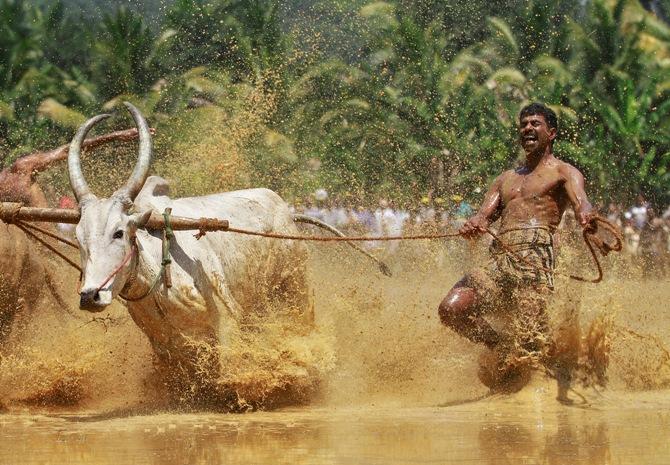

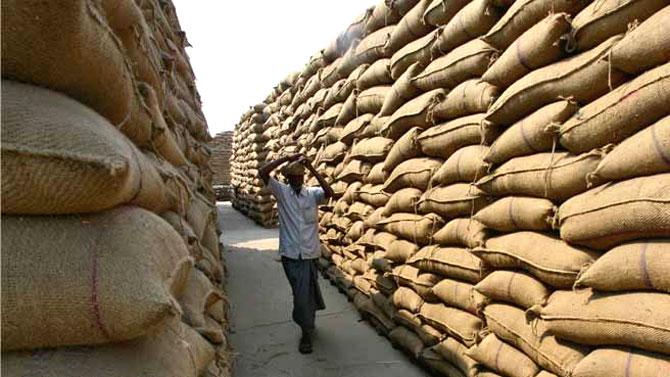
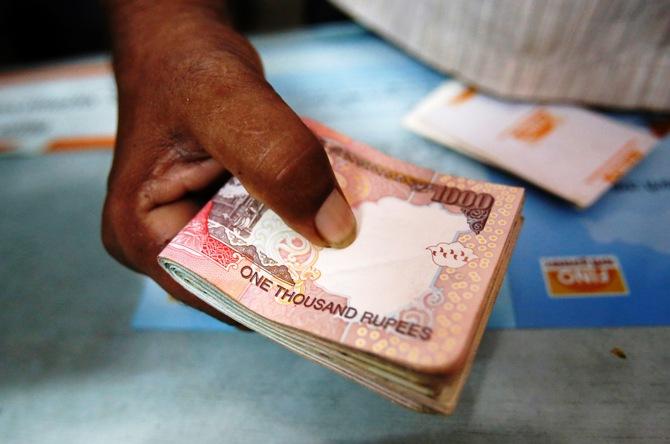

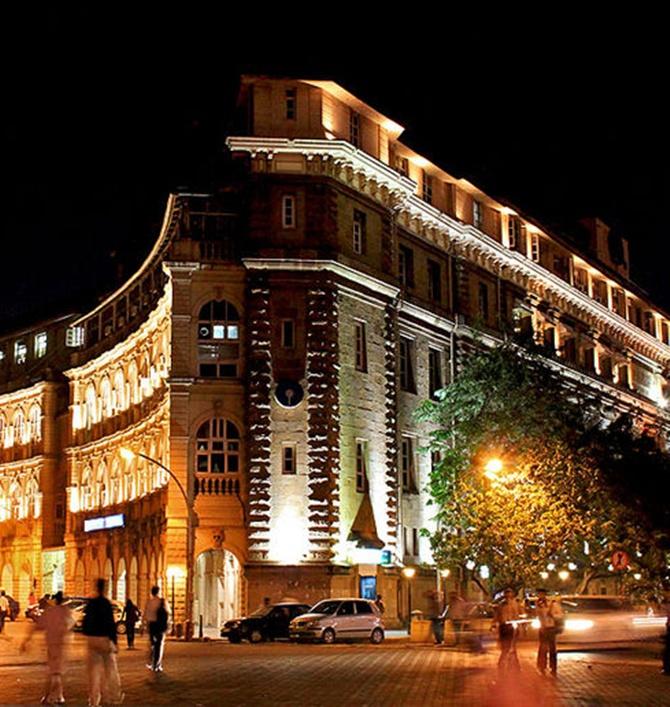
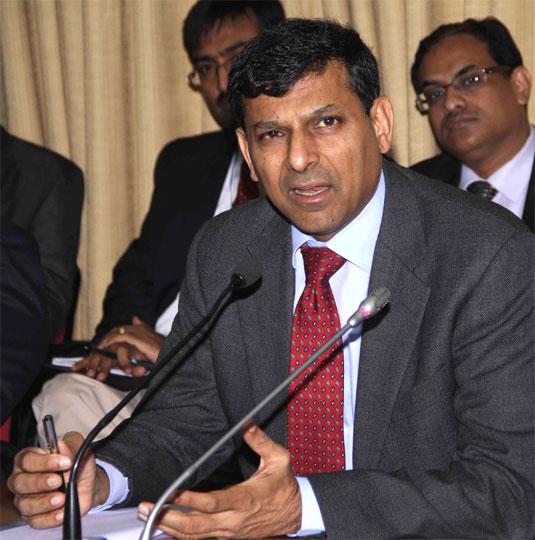
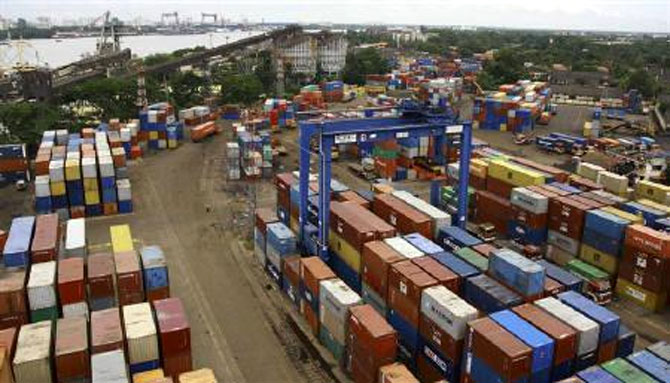

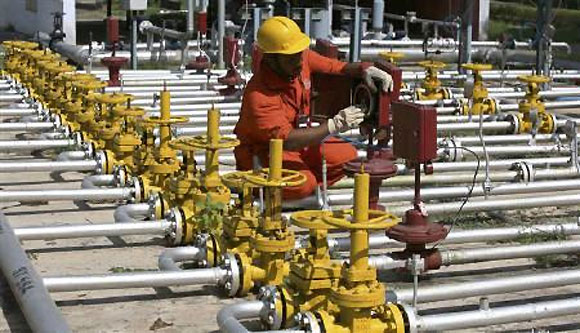
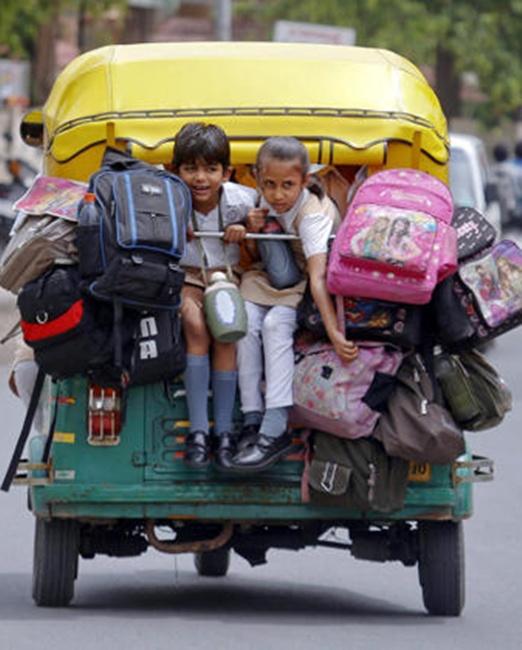
article